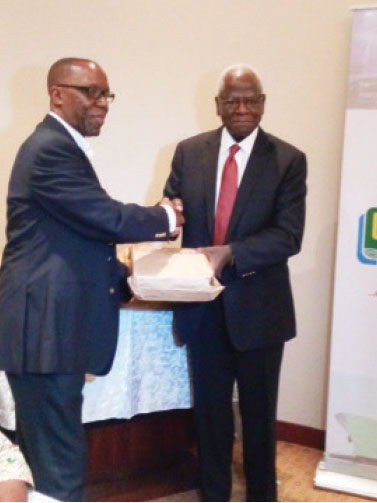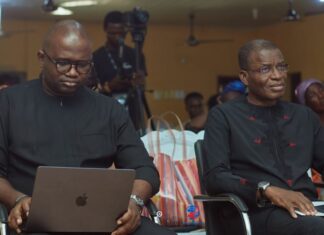By Innocent Anoruo
Professor of English at Bowen University, Iwo, Daniel Izevbaye, has called on the Nigeria Liquefied Natural Gas (NLNG) to set up a library to archive the winning works in the Nigeria prizes for literature and science.
In his acceptance speech at the handing over ceremony of the 173 entries for this year’s contest, which took place at Protea Hotel, GRA, Ikeja Lagos, the don said the company could achieve this by establishing a library within its premises or in a university of its choice.
Izevbaye leads the panel of judges for the 2016 Nigeria LNG-sponsored Nigeria Prize for Literature, which focuses on the prose fiction genre.
According to him, NLNG, which has a choice to spend its money elsewhere, has set the tone for other companies. He added that still leaving the prize to be winner-takes-all is following the steps of others like the Nobel Prize which bequeaths the winner a fortune.
A total of 173 entries were submitted by Nigerian authors from across the country and beyond for the prize this year. This is sequel to call for entry published in February.
Considered Africa’s most prestigious literary award, $100,000 will again be up for grabs, despite the dwindling oil prizes.
At the ceremony, the entries were handed over to the judges by Prof. Ayo Banjo who chairs the Advisory Board for the prize. Other members of the advisory board are Profs. Ben Elugbe and Jerry Agada. Other judges are Professor of Oral and African Literatures at Usman Danfodiyo University, Sokoto, Mrs. Asabe Kabir Usman; as well as Professor of African Literature at Imo State University, Owerri, and the first winner of the award for Literary Criticism also endowed by NLNG Limited, Isidore Diala. The International Consultant is Professor of English at the University of Legon, Ghana, Kojo Senanu.
Submissions are pruned based on a number of considerations, including editorial excellence, creativity and story plot, said the organisers. The last winner of the prize in prose fiction was Chika Unigwe in 2012. She beat 213 authors with her book, On Black Sisters’ Street.
According to Prof. Banjo, “NLNG does not interfere at all in who wins the prize”.
He added that before arrival at the shortlist of three, judges would have pruned down the 173 entries to 22, and then to 11.
Manager, Communications and Public Affairs at NLNG, Tony Okonedo, said excellence is one of the company’s core values. “We continue to expect excellence in the award.”
Considering that Nigeria has more problem in the area of reading than writing, Okonedo told TheNiche that the prize was set up to promote excellence, stimulate reading and writing as well as publishing in the country.
“If you don’t read, you can’t write. You can’t uncouple the reader from the writer; without readers, there is no real writing going on. It is readers who make create bestsellers. Readers are stakeholders in that whole bloc,” he said.
On whether NLNG has plans to reward journalists, especially the subeditors who are ‘ignored’ in media awards, he said it was a good suggestion that could be looked into. “But we do not pretend that we can be all things to all people. Be assured that we fully support excellence wherever it is found. Now, our emphasis is on the science and literature prizes. It’s a possibility, but it is not our priority area for now.”















